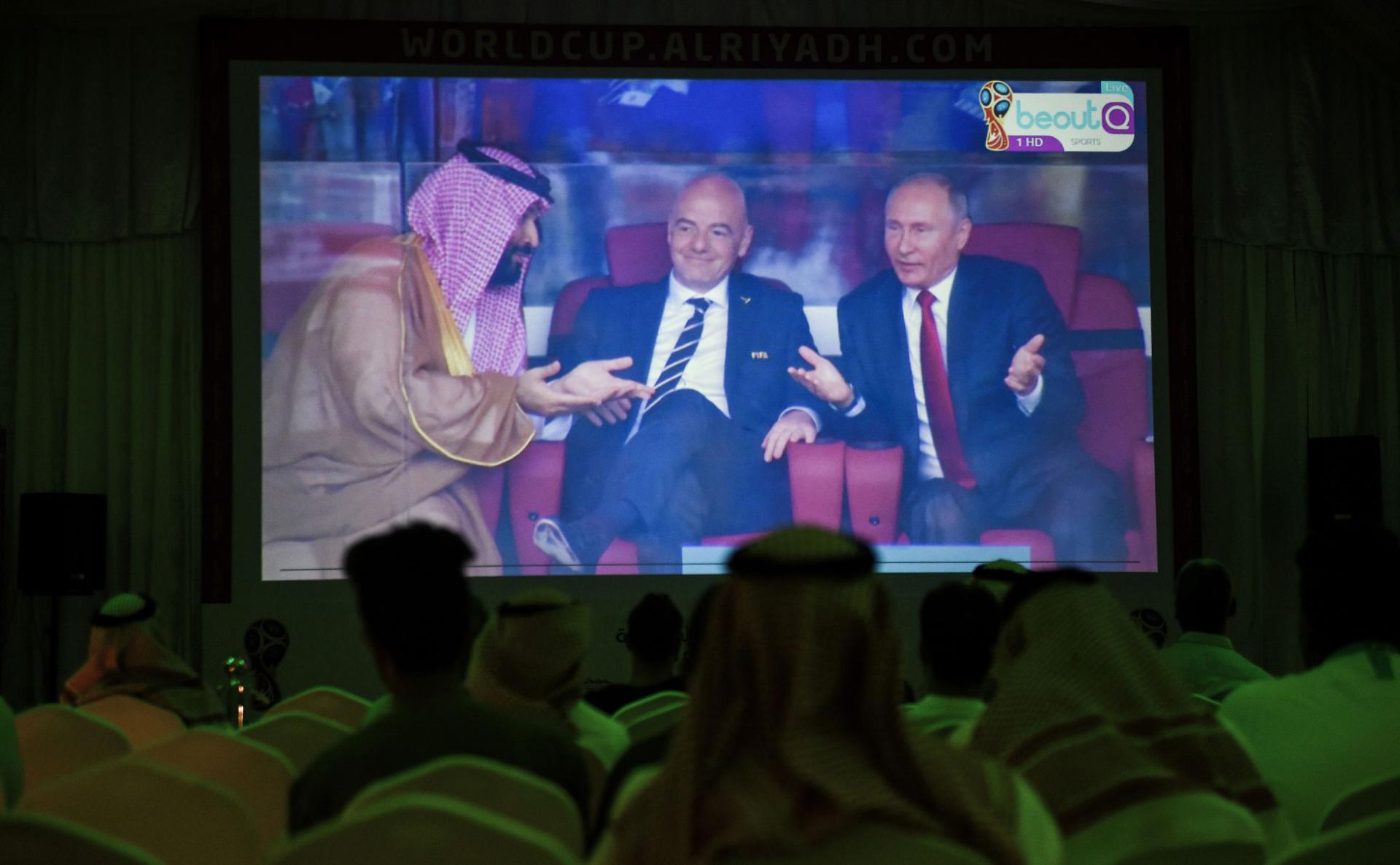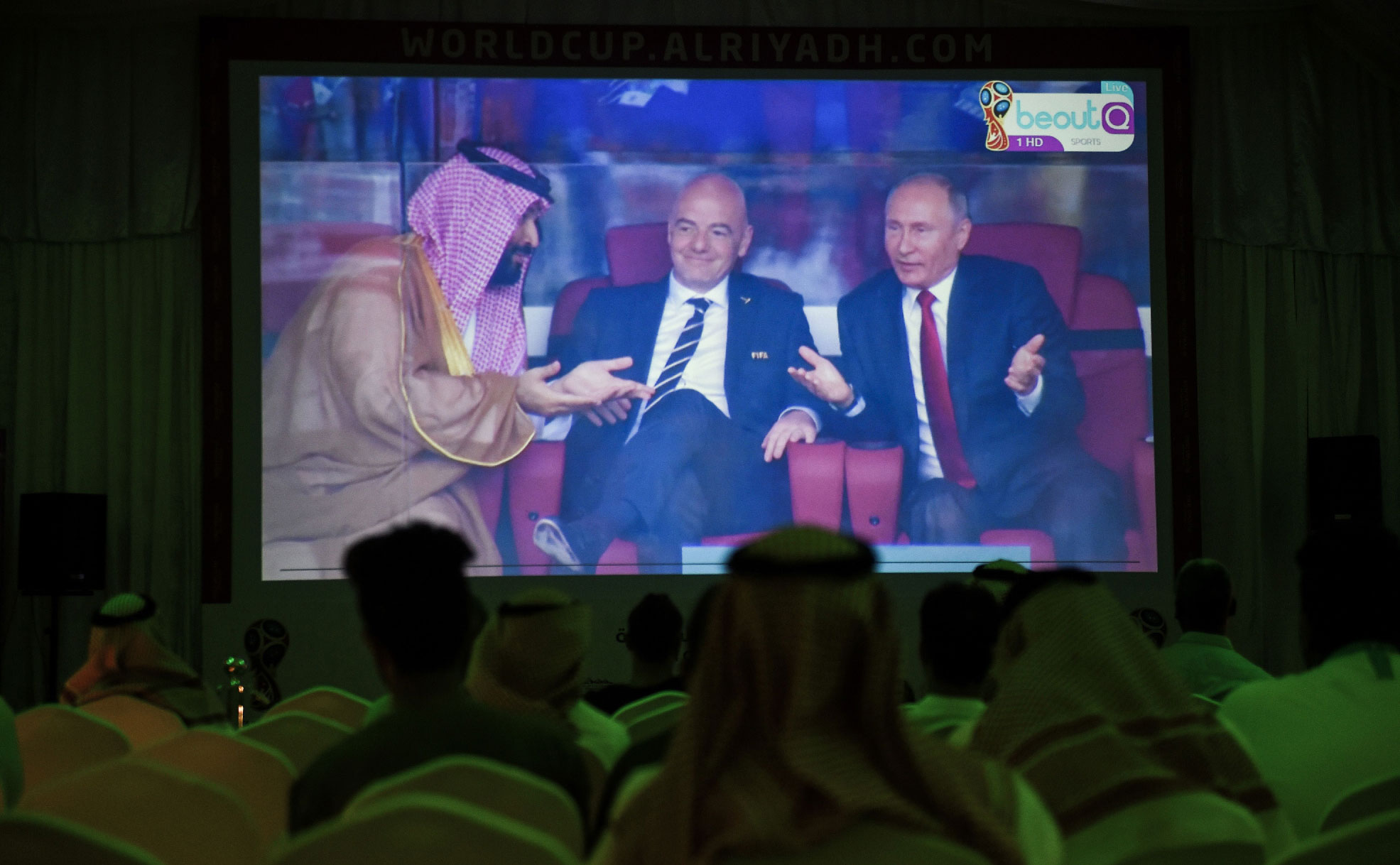Saudi Arabia looks to become football power player
RIYADH - Saudi Arabia may be World Cup minnows, but analysts say the kingdom's backing of North America's winning bid to host the 2026 tournament underscores a drive to become a football powerhouse in the face of regional rivalries.
The United States, Mexico and Canada edged out underdogs Morocco on Wednesday in a vote by members of football's world governing body FIFA supported by Saudi Arabia.
Saudi Arabia has long been a marginal player in football's ruling classes, unlike its Gulf rival Qatar -- set to host the 2022 World Cup -- with which it is embroiled in a year-long diplomatic spat.
But the oil-rich kingdom is seeking to change that with plans to launch a new regional bloc of federations -- dubbed the South West Asian Football Federation (SWAFF) -- which will comprise 14 nations, excluding Qatar.
There have been some suggestions the bloc could give Saudi Arabia greater influence in key decisions facing FIFA, but it is only likely to overshadow the Doha-based Gulf Football Federation.
"Saudi Arabia has ramped up its involvement in the governing architecture of world football in recognition of its popular appeal to its youthful society and a tool of international soft power," Kristian Ulrichsen, a fellow at Rice University's Baker Institute for Public Policy, said.
'Soccer, a battlefield'
Saudi-linked investors are also said to be involved in a $25-billion proposal for two football tournaments that could give the kingdom a bigger voice in global soccer governance.
"This is all part of the Crown Prince Mohammed bin Salman's larger strategy of coming out against, or at least appearing to counteract, Qatar and Iran at every opportunity," Ellen Wald, author of the book Saudi Inc., said.
Saudi Arabia, the United Arab Emirates, Bahrain, and Egypt snapped diplomatic and trade ties with Qatar last year, accusing it of bankrolling Islamist extremists and fostering ties with arch-rival Iran. Doha denies the charge.
With the 2022 World Cup bid having been the target of bribery allegations, Saudi sports authority chief Turki al-Sheikh has suggested Qatar should be stripped of the tournament if found guilty of wrongdoing, and replaced with England or the United States.
"Soccer, and particularly the Qatar World Cup, is an important battlefield in the increasingly overt public relations battle between the Gulf state and its detractors," said James Dorsey, a fellow at Singapore's S. Rajaratnam School of International Studies.
Betrayal
Morocco, which had hoped to become the second country in Africa to host football's biggest competition after South Africa in 2010, voiced bitter disappointment over what local media has dubbed Riyadh's betrayal.
The press accused Saudi Arabia, Morocco's long-time ally, of leading an "all-out campaign" in favour of the North American trio, which won the bid by a margin of 69 votes.
While the Arab League was reported to have offered its support for Morocco's bid, at least seven Arab countries voted for the trio, while Qatar voted for the North African country.
The Lebanese sports ministry voiced "surprise" that its own football federation voted in favour of the North American bid.
"The Saudis had been trying to deliver the regional vote to America to underscore their growing geopolitical assertiveness across the Middle East and North Africa, and underscore their bid to be the Trump administration's closest regional partner," said Ulrichsen.
'Saudi genie'
Riyadh's regional ambitions dovetail with the kingdom's wide-ranging reform drive for a post-oil era.
Long known for its ultra-conservative mores, the kingdom has signed deals to host international championships in partnership the wrestling franchise WWE and the Formula E motor racing series.
Plans are also afoot to privatise more than a dozen soccer teams in a bid to raise funds.
"This strategy plays well in the eyes of Saudis. However, I would question the value of deploying so much diplomatic and financial capital in the sports arena," said Wald.
"It may not yield very much political capital for the amount of money being spent."
But it seems there is no stopping Sheikh, who the Saudi state media said in December had won a regional award for the "Most Influential Figure in Arab Football".
"We were asleep for 15 years," the Saudi sports chief told CNN in May.
"But now we've been awoken like a Saudi genie and we'll achieve results that will astonish everyone."



